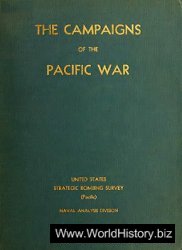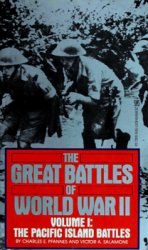The first book of the Institutio, together with the section in book 10 devoted to the readings recommended for the orator-to-be, is the part of Quintilian’s work that has attracted a broader interest over the centuries (see Colson 1924). Book 1 does not deal with rhetoric proper but with the initial stages of education prior to the teaching of rhetoric. Here Quintilian has the opportunity to display his positive attitude toward students. From this attitude springs the image of him as a benevolent teacher devoted to his task with an almost sacred zeal (Schwabe 1909: 1859; see Kennedy 1962 for a balanced criticism of enthusiasm toward Quintilian’s character).
Since Quintilian’s ambitious program aims to leave no aspect ofthe formation ofthe perfect orator untouched, his advice starts literally from the cradle: parents must be conscious that their son will be an orator and must act accordingly immediately after birth (1.1.3); nurses, who will spend the most time with the newborn, should be as educated as possible (1.1.4-5); and if well-educated paedagogi cannot be found, then they should at least be conscious of their lack of education (1.1.8-9). Quintilian’s views have rightly been considered open-minded and relatively innovative, a feature that largely explains his warm reception among modern readers. He advocates ideas and practices that seem to have run counter to long-established usage. Note, for example, what he considers the best way to optimize the early years of education, a period regarded as crucial for shaping many habits and character traits: he insists on the convenience of studying several subjects simultaneously (1.1.12-14), on the benefits of starting school at the earliest possible age and before the traditional age of seven (1.1.15-17), on the need for relaxation and even fun if learning is to be fruitful (1.3.8), on the advantages of good pedagogic material (1.1.24-6), and on the superiority of instruction in schools over private tuition (1.2.1-31). Quintilian also strongly rejects corporal punishment as pointlessly cruel (1.3.13-18) and warns against the possibility of physical abuse that such a frame of violence can foster (1.3.17).
The greater part of book 1 (1.4-9) is devoted to grammatica (‘‘grammar’’), the educational stage between elementary instruction and rhetorical schooling. This consisted essentially of the detailed learning of linguistic correctness, both written and spoken, and the technical study of poetry, where Vergil was already established as the most important text. (On the whole grammatical curriculum, see Bonner 1977: 189-249; Fritz 1949 provides a balanced and accurate account of Quintilian’s views and their wider context.) Quintilian is detailed in his exposition even to the point of prolixity; his lavish exemplification provides the modern reader with a wealth of information about many linguistic usages of the time and illustrates the extent to which Latin was not so fixed a language as literary texts suggest. Beyond the minuteness of particular issues Quintilian does articulate a theory of linguistic correctness that corresponds to modern views on the subject and is based on four criteria (1.6.1-3): ratio, vetustas, auctoritas, and consuetudo. Quintilian’s preferences give clear preeminence to consuetudo - widespread linguistic usage - as the supreme discriminating criterion; this is followed by authority (usages to be found in the ‘‘right’’ writers). On the other hand, analogy, while defended by other critics, must be considered a secondary guide and is often misleading. Quintilian is conscious of the diverse linguistic registers available to a speaker, and the one he draws particular attention to is what we would call the ‘‘learned norm,’’ which is why he defines consuetudo as consensus eruditorum (‘‘the consensus of the educated,’’ 1.6.45).
Quintilian finishes the first book of his Institutio with a consideration of the other disciplines that the future orator should also learn. Quintilian’s broad conception of rhetoric implies that an orator must be well versed in almost every topic; hence he recommends the study of logic, music (1.10.9-33), and geometry (1.10.34-49). Given the importance of oratorical delivery, Quintilian also recommends the help of other teachers such as actors (1.11.1-15) and gymnastic trainers (1.11.15-19). Such a complete curriculum has much in common with the Greek ideal of the enkyklios paideia. Quintilian, however, puts all the emphasis on rhetoric: everything is learned for the sake of an expanded cultural, moral, and philosophical rhetoric that is to replace previous educational ideals. Instead of an all-encompassing enkyklios paideia we find a universal rhetoric to which all other disciplines are subordinate.




 World History
World History









